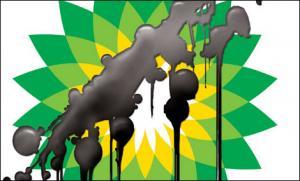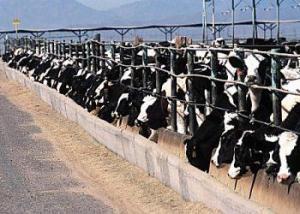New Thinking on BP Spill: Declare a Holiday!
 The BP spill demands a far more significant response than ongoing cleanups, unsuccessful attempts to plug the gushing oil, and desperate efforts to mitigate the multitude of impacts from the biggest oil catastrophe in U.S. history. The BP spill demands a paradigm shift in how we run our economy and carry out our governance. Historians will one day look back on this spill as the nadir of governmental regulatory performance, in which oil companies commandeered and corrupted the Interior Department oil leasing program. So what’s the response we need to get the paradigm shift going? How about declaring a new holiday?
The BP spill demands a far more significant response than ongoing cleanups, unsuccessful attempts to plug the gushing oil, and desperate efforts to mitigate the multitude of impacts from the biggest oil catastrophe in U.S. history. The BP spill demands a paradigm shift in how we run our economy and carry out our governance. Historians will one day look back on this spill as the nadir of governmental regulatory performance, in which oil companies commandeered and corrupted the Interior Department oil leasing program. So what’s the response we need to get the paradigm shift going? How about declaring a new holiday?
Before describing this new holiday, let’s look a little more closely at the current response. Congress is not thinking in terms of a paradigm change either in the economy or the regulatory framework. Nor is the Obama administration. They are thinking about where oil drilling is okay and where it is not. Some Republican leaders, like Representative Barton of Texas, even accused President Obama of trying to “shake down” BP.
 So instead of fundamental change, the most likely Congressional response to the BP spill will be to go back and write a new liability law for oil.
So instead of fundamental change, the most likely Congressional response to the BP spill will be to go back and write a new liability law for oil.
Following the tragic Exxon Valdez tanker accident in Alaska in 1989, Friends of the Earth was a leader in pushing for the 1990 Oil Liability Law to help safeguard against another Exxon Valdez accident. This law put in place requirements for double-hull oil tankers and new liability ceilings. Our hope was that the 1990 law would prevent bad spills and reduce spill frequency, but given the nature of enforcement (coupled with oil company attempts to flout regulations), the law was insufficient to protect the Gulf of Mexico.
This type of legislative response is too tepid to meet the challenge. The gravity of the current BP spill is the latest manifestation of the massively polluting direction of worldwide energy growth – growth that is jeopardizing the livability of our planet.
On July 5, the New York Times reported that per capita energy consumption in China is soaring as its population seeks more and bigger cars and appliances. Given that the global population stands at 6.8 billion and is headed toward 9 to 11 billion by 2050, a paradigm shift in the basis for the world economy is necessary just to head off the many tragedies that are already occurring in connection with excessive consumption, soaring population, grotesque pollution, and the obliteration of diverse ecosystems.
The economic structure must be totally reshaped to require real cost pricing for natural resources to reflect all the external costs imposed on current and future generations and on the life-support systems of the earth. We must ask ourselves serious questions that most economists don’t want to deal with. For example, what is the real cost of coal or of oil? Why is the concept of economic growth sacrosanct?
 It is not just in the energy sector that we see prices failing to reflect their ecological costs, but across the food, health, and safety spectrum. What is the real cost of our food and of the animal factory slum operations that brutalize animals and shove their health and pollution impacts off on neighboring communities? What is the real condition of our topsoil and our groundwater? What is the real index of social and economic well-being, given that GDP (gross domestic product) only measures throughput in the economy with little accounting for the future?
It is not just in the energy sector that we see prices failing to reflect their ecological costs, but across the food, health, and safety spectrum. What is the real cost of our food and of the animal factory slum operations that brutalize animals and shove their health and pollution impacts off on neighboring communities? What is the real condition of our topsoil and our groundwater? What is the real index of social and economic well-being, given that GDP (gross domestic product) only measures throughput in the economy with little accounting for the future?
In particular, under a new economics there would be a shift away from oil usage because the price of gasoline at the pump would be about $9 per gallon when social and environmental costs are included, not the artificially low prices we see today.
The Center for Technology Assessment published an updated estimate showing that the real cost of gasoline at the pump is between $5.60 and $15.14 per gallon if all the hidden subsidies and serious damages caused by gasoline usage were factored in. Health damages from all the air pollution caused by motor vehicles ranges between $231.7 and $942.9 billion annually, and military protection for oil supplies ranges between $55 and $96.3 billion per year.
To move us toward bigger thinking, the United States should declare an Interdependence Day. This July Americans celebrated the 234th Independence Day with fireworks galore. But the U.S. needs more ecological awareness and recognition of our interdependence with the rest of humanity and other life on this planet. On Interdependence Day we could reflect on how much we depend on others and on our environment to support us. We are on spaceship earth together and we need a spaceship economics for us to survive over the long run, not the cowboy economics that produces boom and bust cycles with some big winners and massive numbers of losers.
The gigantic economies of the United States, China, and Europe can spread air pollution and toxins all over the earth and even affect people living in remote areas. Interdependence Day would dramatize how pollution in one area harms people’s health in other areas. It would help foster consideration of the profound changes that must follow in the aftermath of the BP spill.
The future of civilization depends on moving rapidly away from an economy that glorifies jobless growth and futureless growth to a prosperous steady state economy, an economy that tells the truth about the real cost of natural resource extraction and usage.
The stewardship aspects of the economy should appeal to all the great religions of the world, and their voices are needed to counter the disinformation campaigns of the major polluters. The BP oil disaster gives citizens the platform to speak out and demand a new economics for a clean energy future and for the well-being of humanity.





It’s past time to stop using foreign oil! Maybe we will always need some oil, but we just have to stop depending on Middle East oil. There are 3 fairly easy things that all of us can do now to make a difference. 1- Stop pumping gas into your car! If you have a gas guzzler now, convert it into an electric car (see this blueprint for example). No more gas! 2- Stop using electricity off the electric grid! Either build solar panels (like this one), or build a cheap magnetic generator (like this one). Not very hard! 3- Learn to bike or walk! If you are only going a mile to the shop, walk or bike there. My 2 cents.